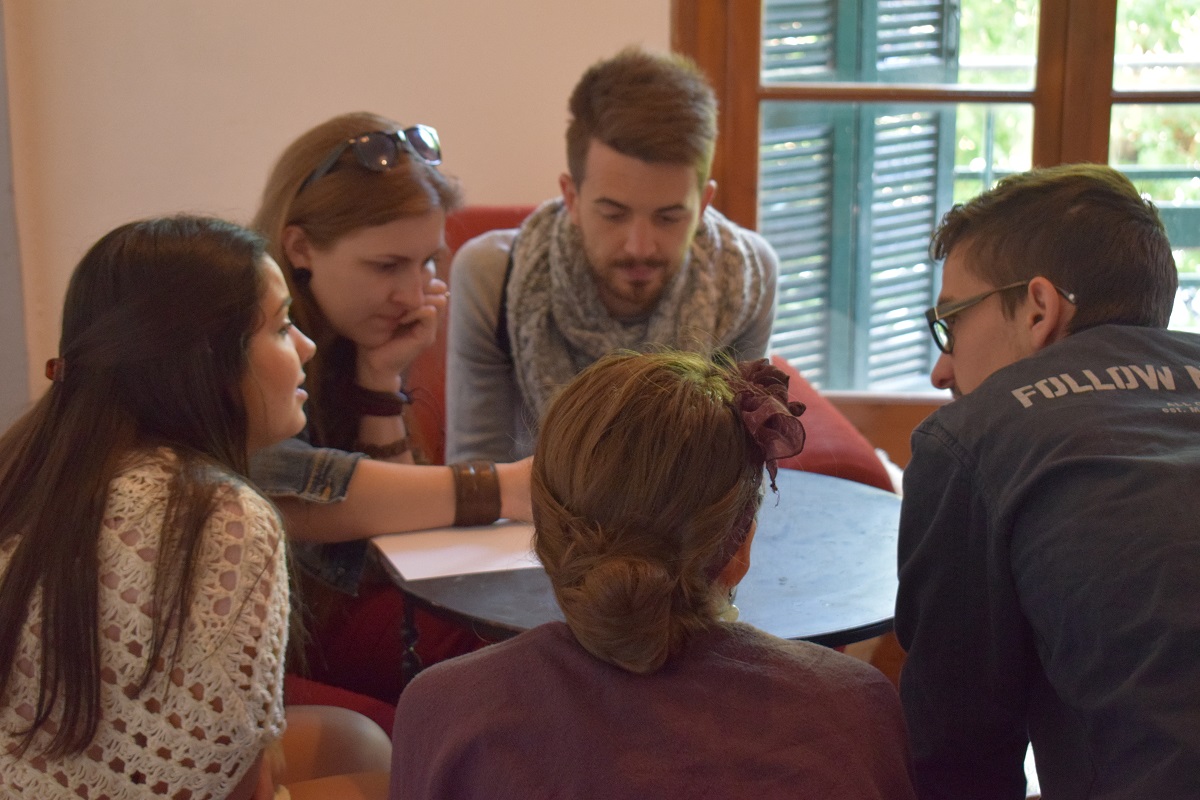“Online portfolios: Use of ICT for the registration and assessment of lifelong learning” was a training course that was implemented in Kalamata, Greece from the 23th to the 30th of April 2017 (including travel days). 22 youth workers will participate in it from 11 different programme countries, Greece, Croatia, fYRoM, Hungary, Italy, Latvia, Portugal, Romania, Turkey, Bulgaria and Spain, supported in this learning process by 2 trainers.
Over the past few decades, the labour market has switched focus from formal education to transversal skills and competences acquired through lifelong learning. This has also brought a focus on the importance of non-formal education and the skills and competences acquired through lifelong learning. To that is added the increasing need and importance of non-formal education, as a tool for the development of skills and competences by all, regardless of their social, financial and educational backgrounds.
However, it is imperative to find ways to register and present the skills acquired through non-formal education, in order to facilitate their use for access to the labour market. Online portfolios constitute a very good tool for and presentation of skills, competences and experiences, recording and providing proof (documents, photos, videos) that present these skills and reveal their learning journey through time. In parallel, it is a very good way to motivate young people to develop ICT skills.

The main aim of the “Online portfolios: Use of ICT for the registration and assessment of lifelong learning” project was the development of skills by the participants, followed by capacity building of the organizations that they represent, in order to be able to suggest and train the young people they are working with, improve the services they provide to the young people and reinforcing the connection between the skills acquired through non-formal learning and the labour market.
The objectives of this project were:
– To familiarize participants with online portfolios and the ways to create them, in order for them to be able to implement activities to train the young people they are working with
– To discover the role of new technologies and IT in reinforcing youth employability
– To demonstrate how the creation of an online portfolio can work as a tool for the connection of the labour market with the competences and skills that are developed through non-formal education, as well as how the mere process of creating it acts as a factor for the development of creativity, entrepreneurship and digital competences
– To support the participants, and consequently the organization that they represented and the young people they are working with, to develop their competences in using ICT in an effective way, and as a tool to empower young people with fewer opportunities and support them in improving their place in the European Labour Market.
– To present the ERASMUS+ programme as one of the basic tools of the European Union in achieving equal opportunities for all and supporting young people to develop transferable skills and competences.
– To create an informal network between partner organisations and to collaborate for the development of future common activities that support young people

The trainers prepared and used a series of non-formal learning tools and methods, such as simulations, work in groups, presentations, round table discussions, debates, etc. All activities were designed in a way so as to contribute to the achievement of the objectives of this project as well as of the best possible learning outcome for the participants.
The participants and the participating organizations of this project, are now acting as multipliers of its results, spreading the knowledge about the creation of online portfolios among their colleagues, peers and the young people they are working with at local and international levels, maximizing the impact of the project in their local communities, but also in the wider European community.
Find our guide about how to create your own online portfolio here: http://www.ngokane.org/wp-content/uploads/2018/01/How_to_create_an_online_portfolio.pdf
Check out our pictures from this project here: https://www.facebook.com/pg/kane.kalamata/photos/?tab=album&album_id=833440640157084



This project was funded with support from the European Commission. This publication [communication] reflects the views only of the author, and the Commission cannot be held responsible for any use which may be made of the information contained therein.


